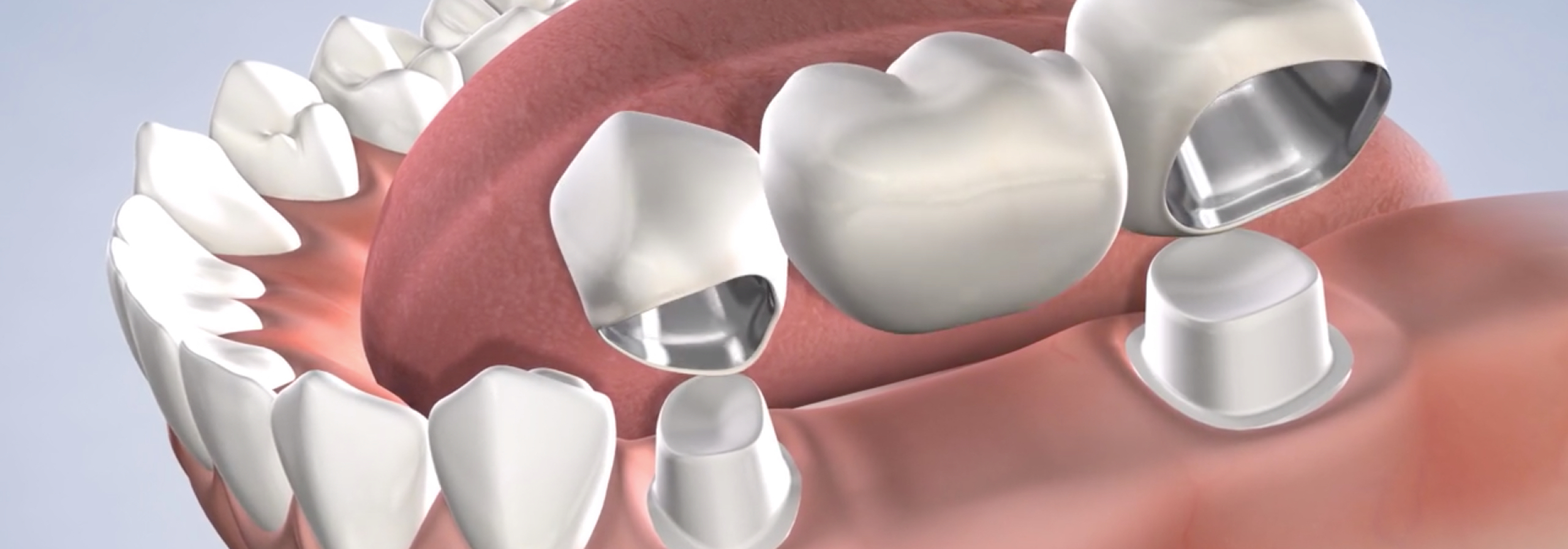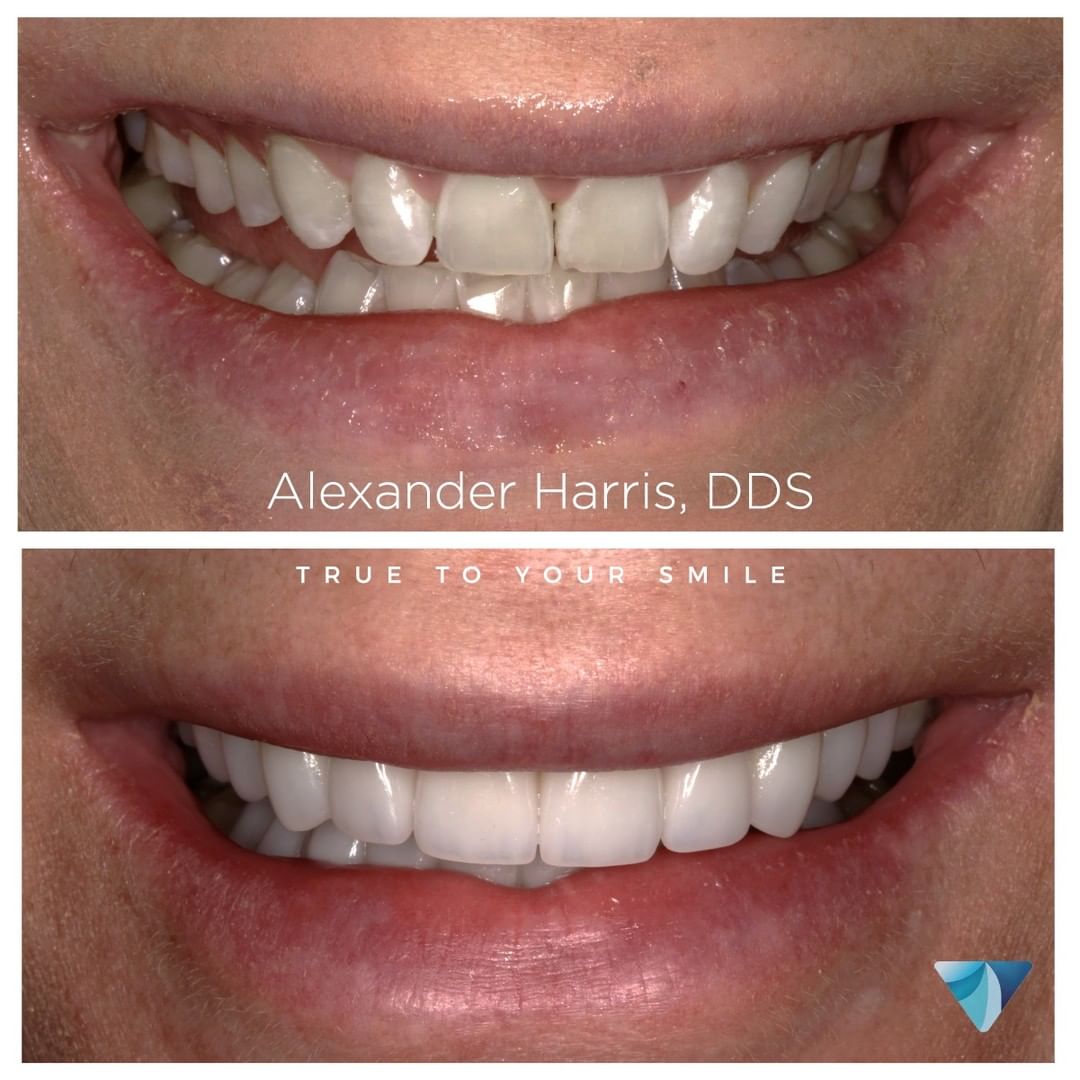

Crowns and Bridges
Restore or Replace Damaged and Missing Teeth
Benefits of Dental Crowns
 A crown is a cap that is placed over a damaged or weakened tooth. It protects the tooth from further damage and restores its appearance. Crowns are also the final part of a dental implant that Alex Harris, DDS places after the implant post heals. If you have an existing tooth that is damaged, but not in full need of extraction, you may have a crown placed over it. If you have a tooth that cannot be saved, or already have a missing tooth that needs to be replaced, you can receive a dental implant, and Alex Harris, DDS will create the final crown that attaches to the implant post. There are many benefits to crowns, including:
A crown is a cap that is placed over a damaged or weakened tooth. It protects the tooth from further damage and restores its appearance. Crowns are also the final part of a dental implant that Alex Harris, DDS places after the implant post heals. If you have an existing tooth that is damaged, but not in full need of extraction, you may have a crown placed over it. If you have a tooth that cannot be saved, or already have a missing tooth that needs to be replaced, you can receive a dental implant, and Alex Harris, DDS will create the final crown that attaches to the implant post. There are many benefits to crowns, including:
- Support a damaged tooth and protect it from further damage
- Protect a tooth after having a root canal
- Hold a severely broken or cracked tooth together
- Protect a tooth with weakened enamel from further deterioration
- Change a tooth’s shape or color for more pleasing aesthetics
Types of Crowns
A crown can be made of one or several materials, depending on the way you’d like your crown to look and your budget. The different types of crowns include:
- Porcelain. Porcelain crowns are the most popular type of crown. All-porcelain or all-ceramic crowns closely match the color of the existing teeth and are ideal for front teeth. Since they are metal-free, they are ideal for patients with metal allergies or sensitivities.
- Porcelain-fused-to-metal. The inside of these crowns are made with metal with a porcelain cover. They are less expensive than all-porcelain or all-ceramic crowns, but sometimes the metal can be seen through the porcelain.
- Zirconia. Zirconia is the hardest and strongest type of ceramic. These crowns closely match the color of other teeth and can withstand great biting force.
- Gold. Gold crowns are very durable, and can last for many years with proper care. They do not look natural, but some patients desire their unique appearance.
- Metal alloy. A metal alloy crown is made of a combination of different metals, such as nickel, silver, platinum, gold, and others.
- Resin. An all-resin crown is made from a variety of plastic materials to create a tooth-colored resin. They are generally less expensive, but wear down faster over time.
When restoring a tooth through this treatment, we sometimes provide a temporary crown to wear until your permanent crown is ready. With dental implants, you will wear a temporary crown after an oral surgeon inserts the implant post. Then when your final crown is ready and healing is complete, Alex Harris, DDS will attach it.
Benefits of Dental Bridges
A bridge is used solely to replace missing teeth. It consists of a pontic, or false tooth, held up by adjacent teeth on either side. This pontic is designed to look just like a natural tooth. There are several types of dental bridges to fit a variety of tooth restoration needs. The most ideal type of bridge for you will depend on the number of teeth missing and their locations in the dental arch. You can receive a bridge to replace a single missing tooth or multiple missing teeth. Benefits of dental bridges include:
- Prevent nearby teeth from shifting into the spaces where teeth are missing
- Restore the ability to speak and eat most foods with a complete set of teeth
- Maintain facial aesthetics with proper dental alignment
- Fewer appointments are required compared to traditional dentures
- Achieve a full smile of natural-looking teeth in both dental arches
Types of Bridges
Alex Harris, DDS will help you select the right type of dental bridge for your smile, health, and budget.
- Traditional. With a traditional bridge, the false tooth or teeth are supported by crowns cemented to the adjacent teeth. This is the most common type of dental bridge.
- Cantilever. Similar to a traditional bridge, a cantilever bridge uses only one adjacent tooth for support.
- Maryland. A Maryland bridge uses both adjacent teeth on either side, but instead of crowns, metal or porcelain framework is used to hold up the false tooth.
- Implant-supported. Instead of relying on your existing teeth for support, an implant-supported bridge uses dental implants to hold the false tooth.

